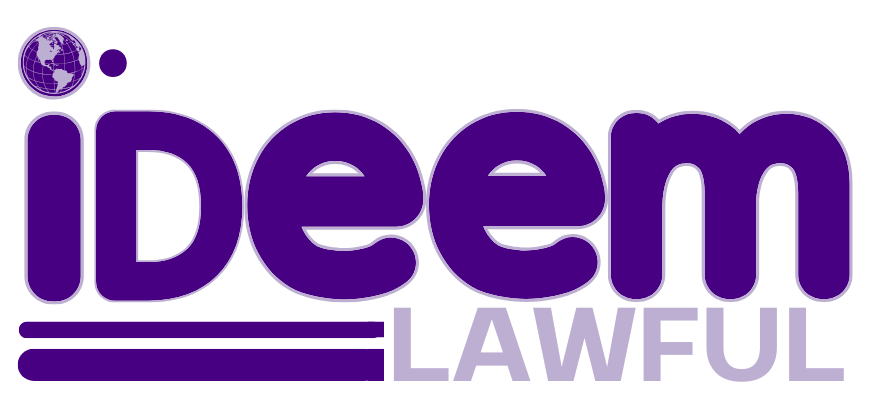Written by Rukayya Idris, ACIBF
In response to Nigeria’s pressing economic challenges, the Presidential Committee on Tax and Fiscal Policy Reforms has recommended a set of legislative proposals known as the Economic Stabilization Bills.
These bills, have recently approved by the Federal Executive Council, aim to address key issues such as income tax law reforms, the promotion of exports, foreign exchange liquidity, and the creation of tax reliefs for both businesses and individuals. And as a law student deeply interested in Nigeria’s legal and fiscal systems, I find these proposed reforms promising. However, like any major legislative initiative, they come with both benefits and potential lapses that should be addressed to ensure effective implementation.
There are benefits of the bill which are notably:
MOST READ ARTICLES
- Income Tax Law Reforms
The bills propose amendments to Nigeria’s income tax laws, which are long overdue. These changes will likely modernize and streamline the tax system, making it more efficient and fairer. This reform could reduce compliance costs and uncertainties for businesses, creating a more business-friendly environment that is likely to stimulate investment and economic growth.
- Encouraging Exports
With a focus on promoting the export of goods and services, these bills aim to position Nigeria as a competitive player in international markets. By offering tax incentives and other support to export-oriented businesses, the government can diversify its revenue streams beyond oil. As someone who has studied the intersection of law and trade, I appreciate the critical need for legal frameworks that support Nigeria’s participation in the global economy.
- Foreign Exchange Reform
The bills also seek to reform the exchange rate regime, which could help stabilize Nigeria’s notoriously volatile currency. By aligning the exchange rate policies with market realities, the government hopes to unlock foreign exchange liquidity, a move that could ease the ongoing foreign currency scarcity faced by businesses and individuals alike.
- Job Creation Incentive
One of the bills proposes tax relief for companies that create incremental employment. This is a particularly commendable aspect of the legislation, as it directly addresses Nigeria’s high unemployment rate by offering businesses tangible incentives to hire more workers. As a law student who is actively involved in projects that empower youth, I recognize how critical it is to incentivize job creation to foster long-term economic stability. The bills also support small businesses and vulnerable populations by proposing the collaboration of the state government and the federal government to suspend certain taxes on small businesses and vulnerable populations
- Personal Income Tax Relief
The proposed increase in personal income tax relief from N200,000 to N400,000 will offer much needed financial relief to employees in both the public and private sectors. This step aims to provide more disposable income, which could boost consumer spending and stimulate economic growth. This relief is particularly important given the rising cost of living in Nigeria.
Potential Lapses in the Bills
While the bills are promising, there are several lapses and obstacles that could hinder their successful implementation if not properly dealt with:
- Inadequate Infrastructure for Export Promotion
While encouraging exports is a noble goal, Nigeria’s infrastructural deficits particularly in transportation and electricity remains a significant hinderance. Without addressing these fundamental issues, businesses may struggle to compete in international markets, and the tax incentives may not have the desired effect.
- Challenges in Exchange Rate Reforms
The proposed foreign exchange reforms could face short-term difficulties, such as inflationary pressures or currency depreciation. In the absence of robust FX inflows, such as through increased foreign direct investment or higher oil revenues, stabilizing the exchange rate may be more difficult than anticipated.
- Coordination Challenges Between Federal and State Governments
The collaboration between Federal and State governments to suspend certain taxes may face difficulties due to divergent fiscal policies and priorities. Some states may resist suspending taxes due to budgetary constraints, which could undermine the effectiveness of this provision.
Implementation Challenges
The success of the Economic Stabilization Bills depends heavily on effective implementation. Nigeria has a sad history of policy inconsistencies and administrative challenges, particularly in areas such as tax enforcement and intergovernmental collaboration. For these bills to achieve their goals, the government must prioritize:
- Clear, enforceable guidelines to prevent abuse of tax reliefs.
- Improved coordination between federal and state governments to ensure that the tax suspensions for small businesses and vulnerable populations are applied fairly and consistently.
- Strengthening of infrastructure, especially in sectors like transportation and power, to support export growth.
- Capacity building within the Federal Inland Revenue Service (FIRS) to ensure proper enforcement and compliance with new tax laws.
In conclusion, while the Economic Stabilization Bills although not perfect, offers a solid foundation for addressing some of Nigeria’s most pressing fiscal and economic issues. I believe in the potential of these reforms to make a real difference in the lives of Nigerians if they implemented with care and foresight.
REFERENCES
- “Intergovernmental Relations in Nigeria: Challenges and Prospects.” Journal of African Law.
- “Law and Economic Development: A Case Study of Nigeria.” African Journal of Law and Gover
- nance.
- “Impact of Tax Incentives on Job Creation in Nigeria.” Business Day Nigeria.
- “Nigerian Cabinet Approves Economic Stabilization Bills.” The Guardian Nigeria.
- “Supporting Small Businesses in Nigeria: The Role of Government.” Nigerian Economic Summit Group.
- “Understanding the Nigerian Tax System: Personal Income Tax.” Taxation in Nigeria: An Overview.
- “Nigeria: Tinubu Sets Up Presidential Committee on Tax and Fiscal Policy Reforms.” This Day Live.
- “The Implications of Exchange Rate Policy for Nigeria’s Economy.” CBN Economic & Financial Review.
- “Nigeria’s Infrastructure Deficit: Challenges and Opportunities.” PwC Nigeria.
By
Rukayya Idris, ACIBF, 400 level law student, idrisrukayya755@gmail.com or +234 8167 855 972


